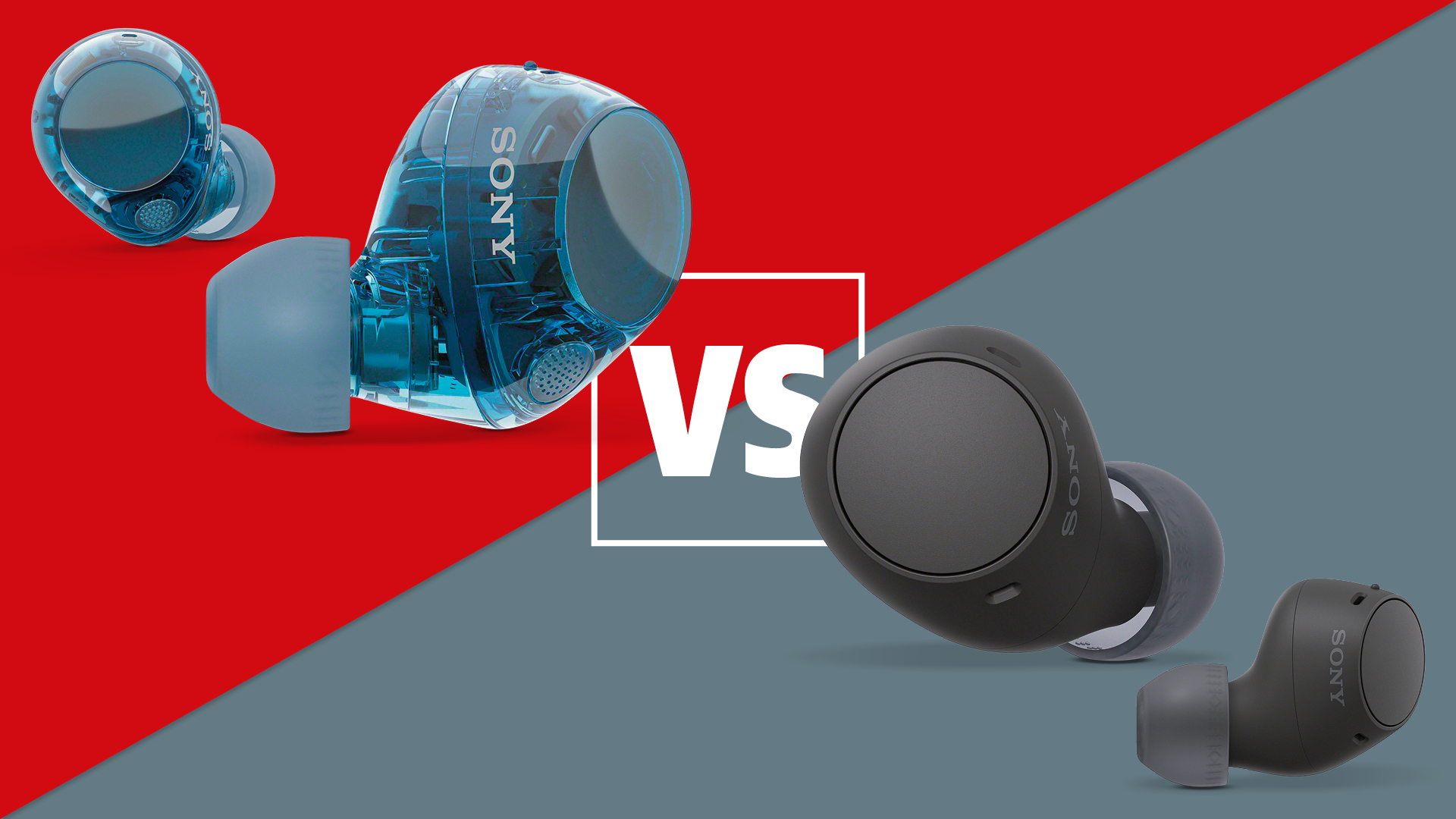LG C5 vs LG C4: what’s the difference, and which one should you buy?
There's a new C-series LG OLED on the block. But is it worth the hype?

LG's C-series OLED TVs have always filled the sweet spot in the company's line-up, delivering an impressive balance of performance and value that’s earned them multiple well-deserved What Hi-Fi? Awards over the years. Now, with the arrival of the C5, it's time to look at how the latest model compares to its highly acclaimed predecessor, the LG C4.
Having now subjected the C5 to our testing room gauntlet in our LG C5 review, we've gained valuable insights into its real-world performance compared to the C4. While a final in-depth verdict awaits LG's confirmation of pricing details, the fact that both models have been reviewed reveals meaningful differences between these two OLED contenders.
With that said, let's see how these two OLED titans compare...
LG C5 vs LG C4: price, size and availability
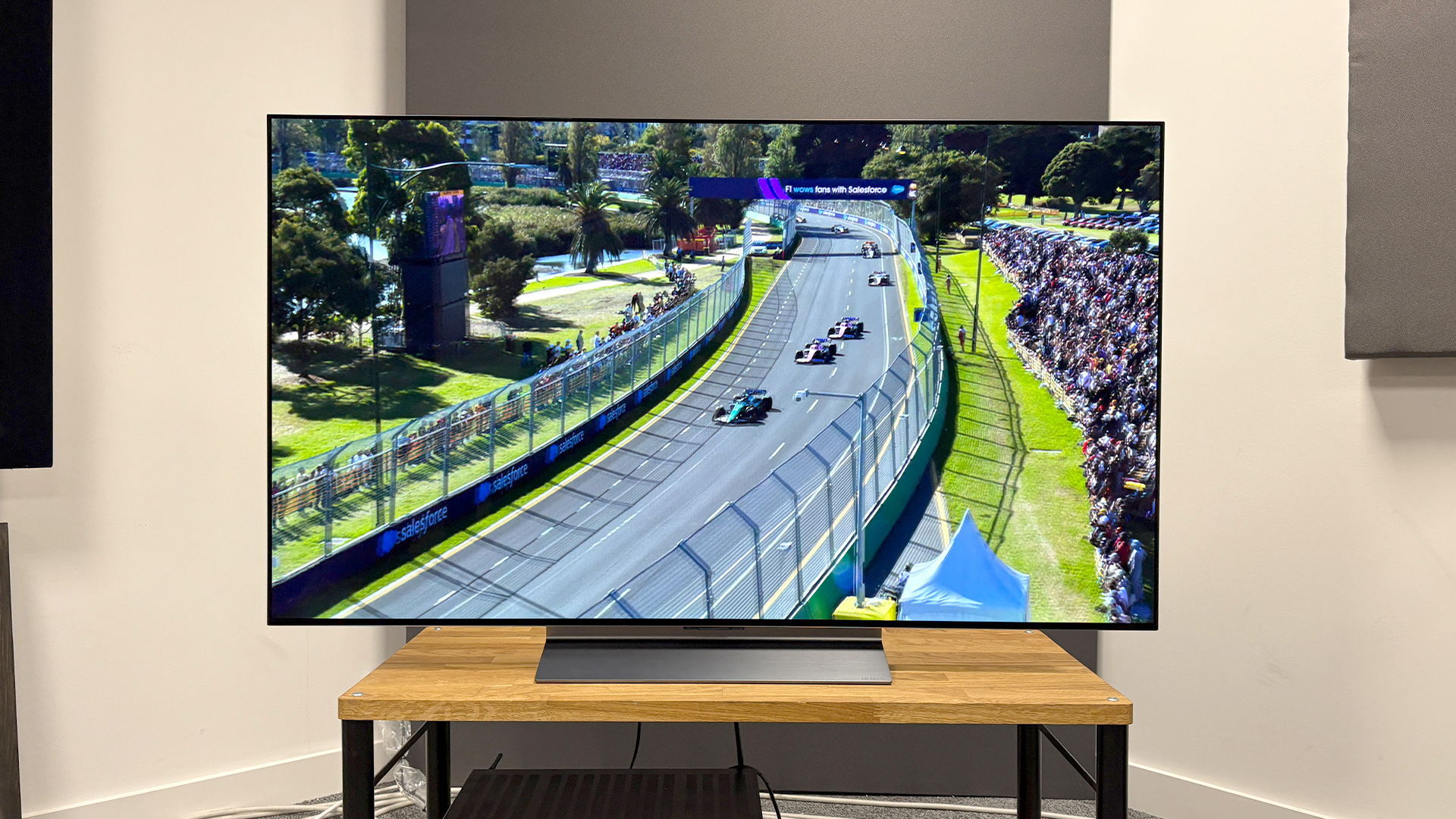
The LG C5 is set to hit shelves this spring, though LG has kept its cards close to its chest when it comes to the pricing details. Looking at historical trends though, we can make some educated guesses based on the C4's launch prices, which saw the 65-inch model debut at £2700 / $2699 / AU$4299, with the 55-inch variant at £1900 / $1999 / AU$3299. The full C4 range spans from a 42-inch model at £1400 / $1499 / AU$2199 up to the flagship 83-inch version at £6000 / $5399 / AU$7999.
Both the C5 and C4 are available in identical screen sizes – namely, 42-inch, 48-inch, 55-inch, 65-inch, 77-inch and 83-inch. It’s also worth noting that the smaller 42-inch and 48-inch variants typically offer slightly different performance characteristics compared to their larger siblings, particularly when it comes to peak brightness capabilities.
The C4 has already seen significant price drops since its launch, with the 65-inch model now frequently available for around £1999 / $1999. This price movement will likely influence buying decisions as we await the C5's arrival, especially given what appears to be an iterative upgrade approach this year.
LG C5 vs LG C4: design and build
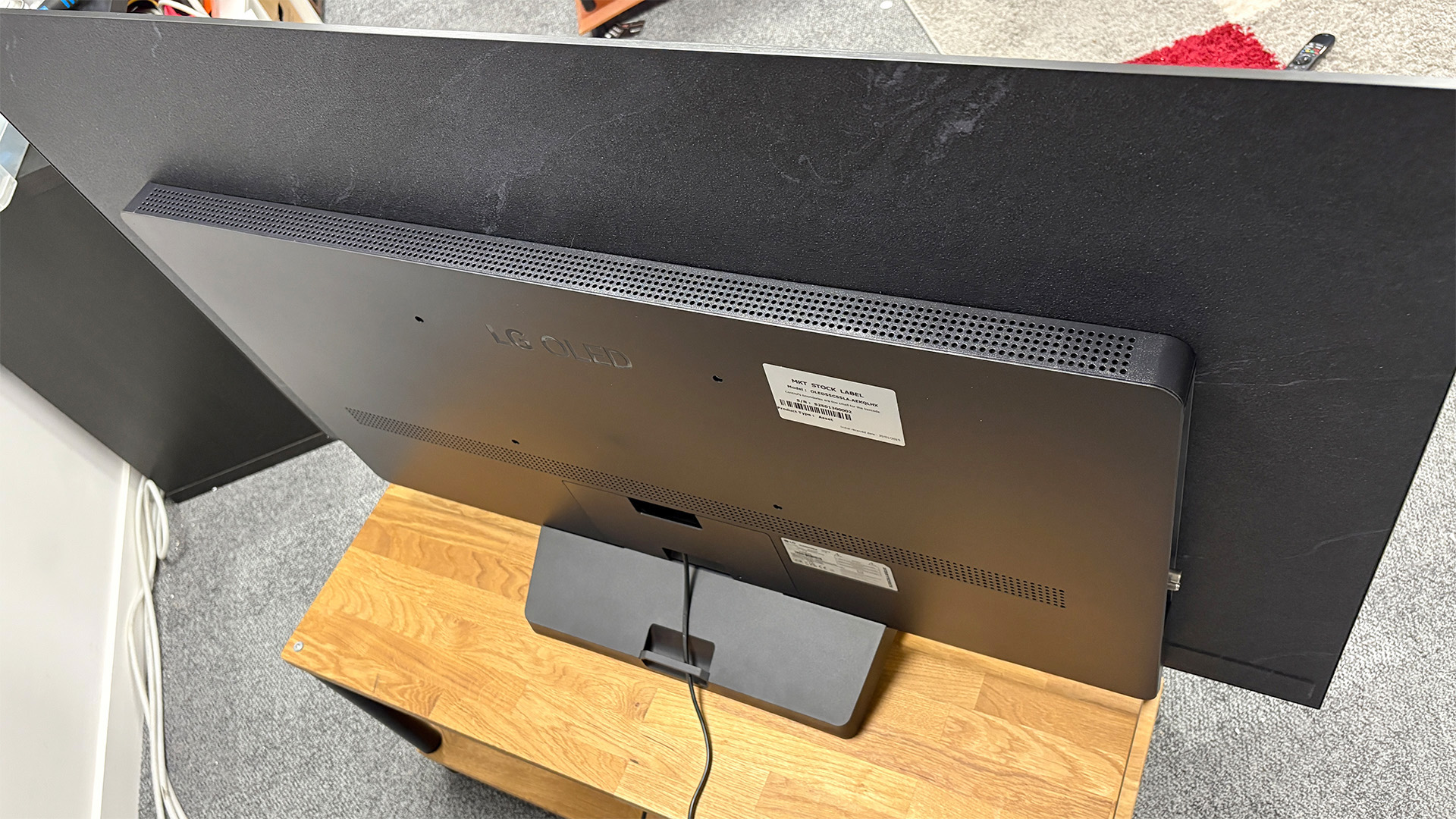
At first glance, you might struggle to tell the C5 and C4 apart, as LG has maintained the same fundamental design language that has served the C-series so well. Having said that, those of us who prefer more of a physical change when upgrading our tech might be left with the disappointing feeling that we’re not really getting anything new. Even if we are.
Both models feature an incredibly slim profile for most of their chassis – around half a centimetre – with a slightly thicker enclosure (4.7cm, to be precise), housing the electronics, connections and speakers.
The most notable physical change in the C5, though, comes in the form of the C5's new Magic Remote, which has been completely redesigned to be slimmer and longer than its predecessor. The new remote ditches the number pad in favour of a more streamlined layout, though UK buyers should note they'll still receive the traditional Magic Remote design. Boo.
Both TVs also feature a central pedestal stand that, while aesthetically pleasing and practical for narrower furniture and media units, creates challenges when it comes to soundbar placement. This remains a notable oversight given the popularity of soundbars, especially as most people turn to them as a common form of TV audio upgrade.
LG C5 vs LG C4: features and processor
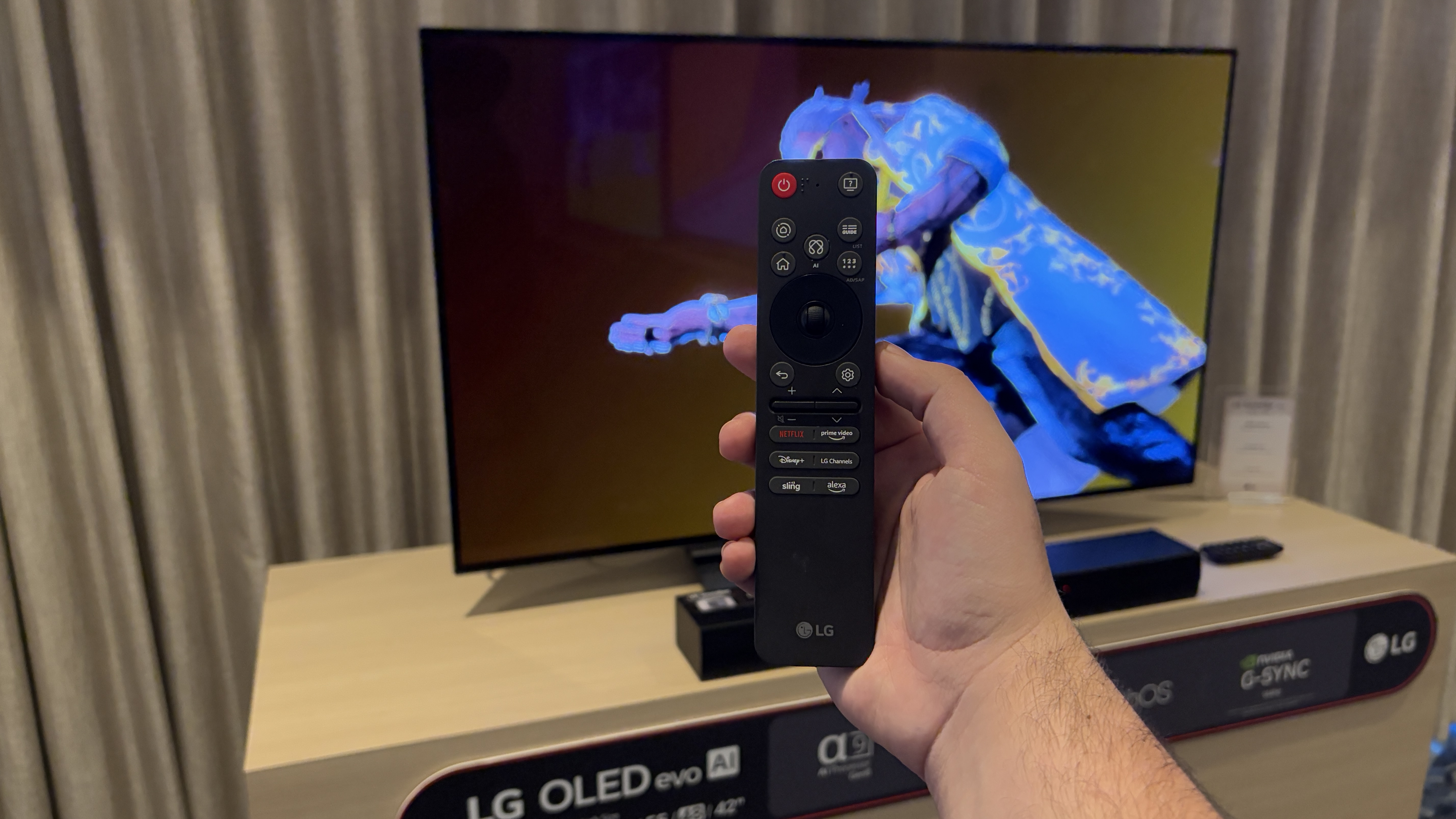
A significant change in the 2025 line-up is LG's move away from MLA (Micro Lens Array) technology entirely. While neither the C4 nor C5 feature MLA panels, it's worth noting that LG has now shifted to new Four-Stack OLED technology for its premium models, though this is reserved for the G5 and M5 rather than the C5.
The C5 also introduces LG’s new Alpha 9 AI Processor Gen8, which is an evolution of the C4's Alpha 9 Gen 7 chip, and brings the promise of several meaningful improvements to the table. It introduces enhanced AI capabilities for a start, including voice recognition that can automatically switch between user profiles and customised settings based on who's speaking.
There's also a new AI chatbot feature designed to help users troubleshoot issues and optimise their TV settings through natural language interaction. Rather than trawling through menus, for example, you can simply verbally ask for more vibrant colours, and be deliverd them like magic.
Both the C4 and C5 feature four HDMI 2.1 ports with 48Gbps bandwidth, supporting the full range of modern gaming features. Both TVs also support 4K/144Hz gaming, which is a boon for users looking to hook up their high-end PCs. Both sets also offer VRR (Variable Refresh Rate) with support for AMD FreeSync Premium and Nvidia G-Sync, along with ALLM (Auto Low Latency Mode) and Dolby Vision gaming.
As for the OS, the C5 is rocking webOS 25, which is an evolutionary rather than revolutionary update, with a few AI and gaming features thrown in.
LG C5 vs LG C4: picture quality
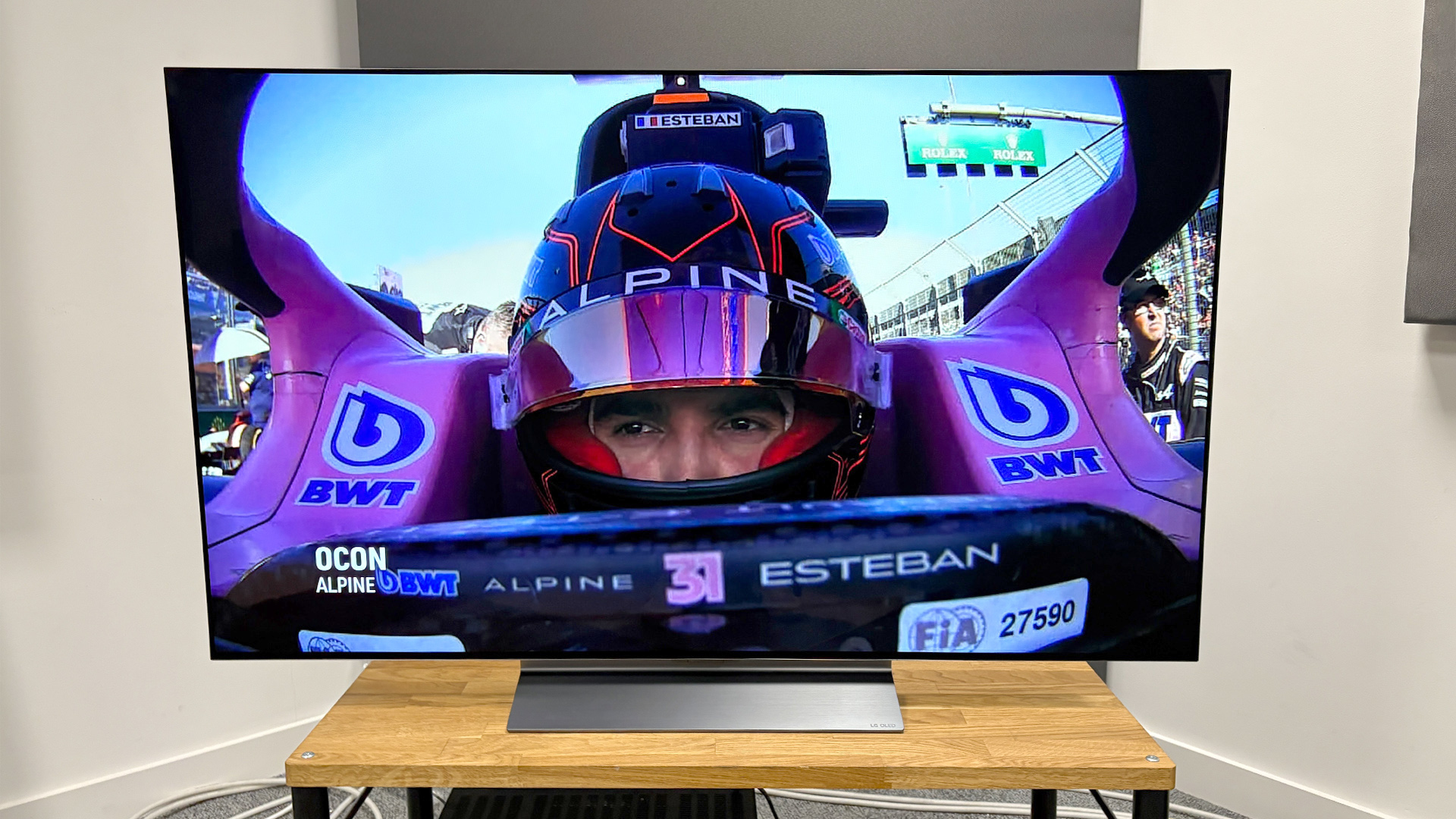
Both models use WOLED panels with LG's Brightness Booster technology, though the C5 is claimed to offer some brightness improvements through panel and processing enhancements. However, it's important to note that the smaller 42-inch and 48-inch versions of the C5 won't see the same brightness levels as their larger siblings – this follows the same pattern as the C4.
Both the C5 and C4 support HDR10, Dolby Vision, and HLG formats of HDR, though neither offers HDR10+ compatibility. The new Alpha 9 Gen8 processor in the C5 also promises enhanced HDR processing capabilities, including more sophisticated dynamic tone mapping, and improved AI Picture Pro features for better upscaling of lower quality content.
Our C5 review found meaningful picture quality improvements. The cinematic presentation is impressive, excelling particularly with film content, offering visual refinement that builds upon the C4's already impressive foundation.
Color reproduction stands as a particular C5 strength, delivering vibrant yet natural hues across all content types. It also serves up rich, accurate tones in shadowy areas where many displays struggle. This translates to more lifelike skin tones with subtle warmth that competitors often miss.
Image dimensionality receives a noticeable boost too, with the C5 creating convincing depth through precise contrast handling. Objects appear distinctly separated from backgrounds without artificial edge enhancement, creating a three-dimensional effect that enhances viewing immersion.
Brightness capabilities show measurable improvement as well – something that’s particularly evident in HDR content. While not matching the luminance peaks of premium technologies like QD-OLED or MLA panels, the C5 pushes standard WOLED technology to new heights, delivering impactful highlights and improved overall brightness that enhances viewing in moderately lit environments.
As for optimal HDR10 performance, we strongly recommend enabling dynamic tone mapping (found disabled by default in Filmmaker Mode), which significantly improves brightness handling and reveals the full potential of the C5's enhanced luminance capabilities.
One area where the C4 occasionally showed limitations was in shadow detail with SDR content, particularly in darker scenes. The C5, in contrast, showed marked improvement in dark scene reproduction during our testing. Even in challenging low-light sequences, its display maintained excellent black level differentiation, providing subtle variations between dark elements without compromising overall contrast.
LG C5 vs LG C4: sound quality and smart features
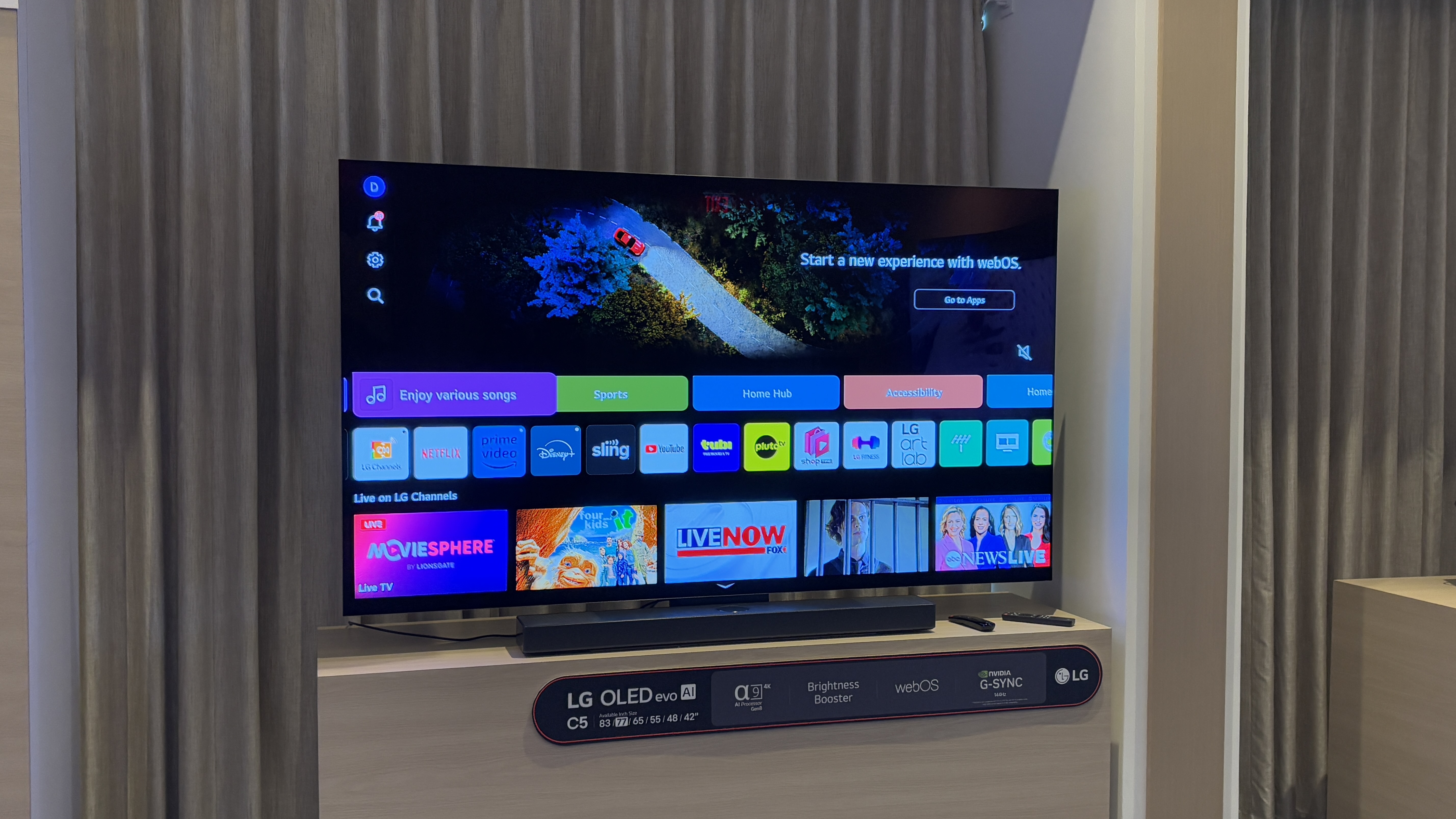
The C4 marked a significant improvement in audio performance over its predecessor, with notably better dynamics and weight compared to the C3. But with the newer C5, we were expecting more.
The C5 carries over the virtual 11.1.2 surround sound processing from the C4, and introduces an enhanced AI Sound Pro feature with improved voice remastering for dialogue clarity. However, our C5 audio testing reveals merely adequate performance from its integrated speakers. While dialogue is clear enough for casual viewing, the overall presentation lacks the dynamic range and impact that premium content deserves.
Bass response represents the most significant audio shortcoming, with the C5 struggling to deliver convincing low-frequency effects during dramatic moments. Increasing the volume to compensate also introduces unwanted distortion. Surprisingly, the AI Sound enhancement proves counterproductive, introducing harsh, fatiguing tonal characteristics that actually diminish the listening experience, rather than elevating it.
Given these limitations, pairing the C5 with a quality external audio solution like one of the best soundbars, becomes less of an optional upgrade, and more of a practical necessity for sound that matches the display's visual excellence. And if that wasn’t enough to convince you, What HiFi? Editor in Chief Alastair Stevenson has penned his thoughts on why the LG C5 is a great example of why he wants OLED TV makers to ditch built-in speakers altogether.
LG C5 vs LG C4: verdict

Based on our testing, the C5 represents a careful evolution of the C4's winning formula, rather than a truly dramatic upgrade. The new processor brings welcome AI and picture quality enhancements – particularly in terms of brightness and colour performance in darker scenes – while the redesigned remote (where available), offers something physically new.
Ultimately, the C5 continues LG's tradition of excellence in its established OLED segment, delivering technical refinements that enhance the viewing experience without fundamentally reinventing it. The combination of improved brightness handling, sophisticated colour reproduction, and comprehensive connectivity options, maintains the C-series' reputation as a versatile performer suitable for most viewing environments.
However, with the core OLED panel technology remaining similar, the decision between these models may ultimately come down to pricing. The C4 has proven itself as an excellent performer, and with significant price reductions now available, it could represent exceptional value for money. Those who prioritise having the latest features and AI capabilities might want to opt for the C5, but they should expect to pay a premium for these incremental improvements.
A definitive recommendation between these two OLED siblings awaits LG's confirmation of C5 pricing. Stay tuned.
MORE:
Read our LG C5 review
LG announces G5, C5, B5 and M5 OLED TVs, none of which features MLA technology
Get the What Hi-Fi? Newsletter
The latest hi-fi, home cinema and tech news, reviews, buying advice and deals, direct to your inbox.

You must confirm your public display name before commenting
Please logout and then login again, you will then be prompted to enter your display name.
